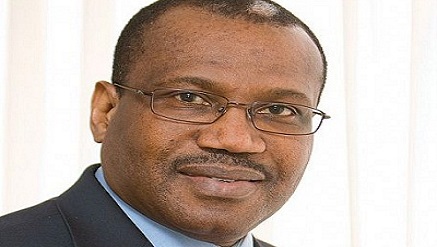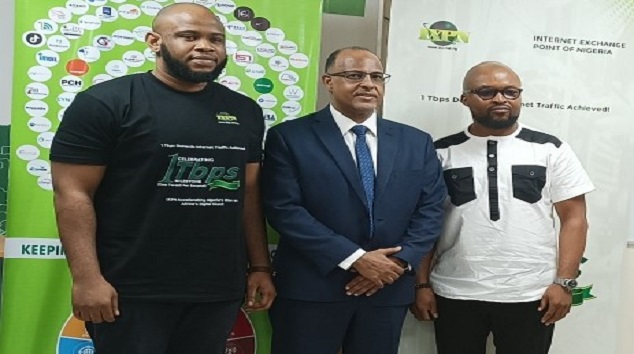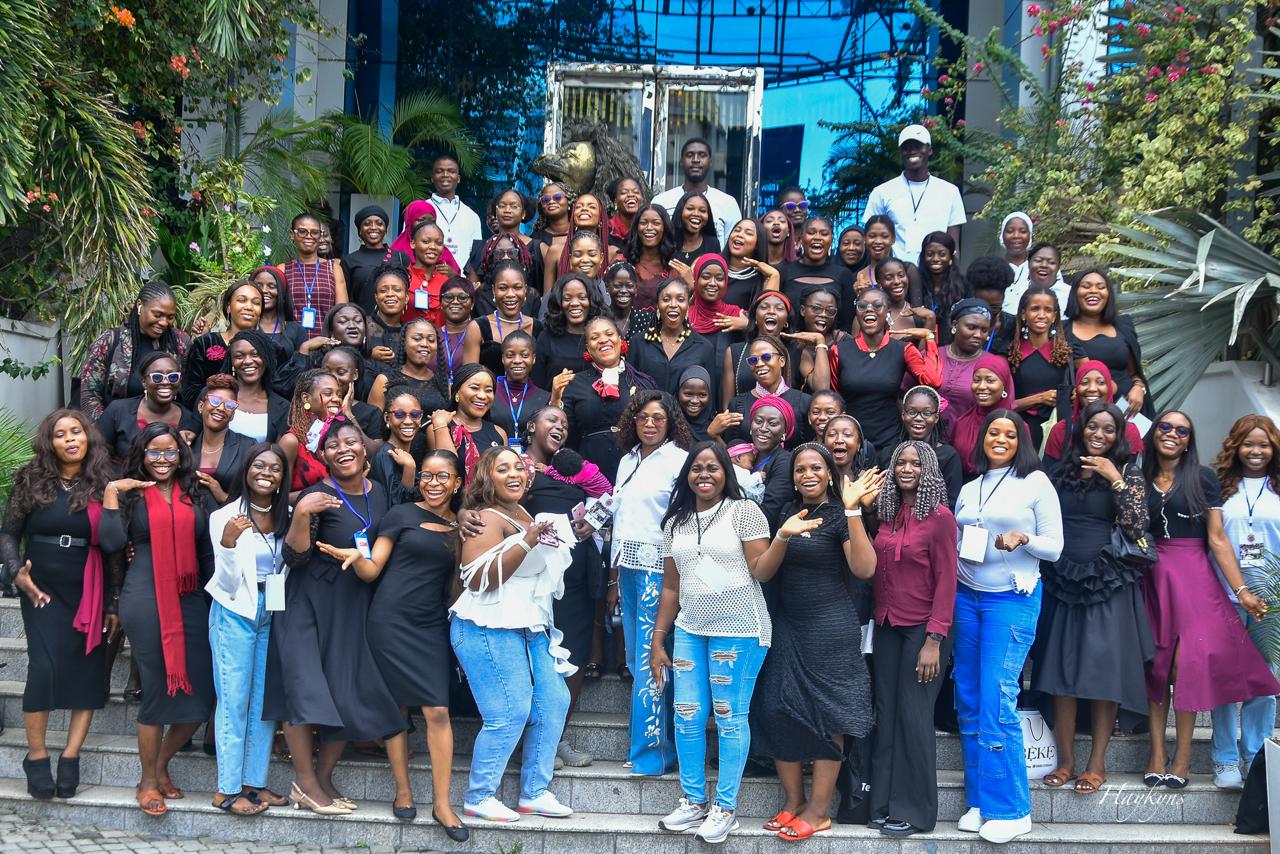Telecom
ITU Strengthens Effort to Address Counterfeit ICT Devices

ITU discussions to address the growing problem of counterfeit ICT devices was actively participated, contributed to and progressed at the latest ITU-T SG11 (Protocols and test specifications) meeting held in Geneva this July.
A group of experts from various administrations and industry, as well as international organizations including the World Trade Organization (WTO), World Custom Organization (WCO) and the World Intellectual Property Organization (WIPO), and the Mobile Manufacturing Forum (MMF), contributed to the progress of the draft Technical Report on “Counterfeited and Substandard ICT Equipment”, which is anticipated as a baseline document for further developments in this area.
Several forums and conferences have called for ITU’s assistance in addressing the growing problem of counterfeit telecommunications/ICT products and devices, which is adversely affecting all stakeholders in the ICT field (vendors, governments, operators and consumers).
As a result, ITU-T SG11 agreed to revise the terms of reference of its Question 8(Q8/11) ‘Guidelines for implementations of signalling and protocols, and for addressing counterfeit ICT devices’, which is the group dealing with this work.
Isaac Boateng, National Communications Authority, Ghana, and Rapporteur of Q8/11said: “The study on Counterfeit ICT devices currently going on in SG11 was driven by Resolution 177 (Guadalajara, 2010) of the Plenipotentiary Conference, on Conformance and Interoperability which ‘instructs the Director of the Telecommunication Development Bureau, in close collaboration with the Director of the Telecommunication Standardization Bureau and the Director of the Radio communication Bureau, to assist Member States in addressing their concerns with respect to counterfeit equipment’. I expect that the publication of the Technical Report could support the ITU Member States, particularly those in developing countries, to develop policies and regulatory framework to combat counterfeit devices in their national telecommunications/ICT strategies.”
An event on “Combating counterfeit and substandard ICT devices” will be taking place on 17 and 18 November 2014 at ITU Headquarters, Geneva, Switzerland. Substandard and fake ICT products are a serious issue that impacts developed and developing economies, the ICT industry, as well as the consumer population around the world.
The objectives of this event are threefold, namely to: discuss the global scope and impact of counterfeiting and substandard ICT products on various stakeholders; highlight the common concerns, challenges, initiatives, practices and opportunities of the various stakeholders in their fight against counterfeiting and substandard ICT products; and examine the possible role of ICT standards development organizations (SDOs), and in particular the ITU, as part of the global strategy and solution to curtail counterfeiting and substandard ICT products.
The ITU World Telecommunication Development Conference (WTDC) also approved in Dubai (2014) a new Resolution on “The role of telecommunications/information and communication technologies in combating and dealing with counterfeit telecommunication/information and communication devices” (see draft final report Members restricted).
The next physical meetings of the group focusing on Counterfeiting in ITU-T (Q8/11) will take place back-to-back with the “Combating counterfeit and substandard ICT devices” event in ITU Headquarters on 19-21 November 2014. The Technical Report on “Counterfeited and Substandard ICT Equipment” will then be stable for approval. ITU Members are also invited to submit Contributions to Q8/11 to start new work items on this topic.
Gartner Warns Organizations of Data Lake Fallacy
The growing hype surrounding data lakes is causing substantial confusion in the information management space, according to Gartner, Inc. Several vendors are marketing data lakes as an essential component to capitalize on Big Data opportunities, but there is little alignment between vendors about what comprises a data lake, or how to get value from it.
“In broad terms, data lakes are marketed as enterprise-wide data management platforms for analyzing disparate sources of data in its native format,” said Nick Heudecker, research director at Gartner.
“The idea is simple: instead of placing data in a purpose-built data store, you move it into a data lake in its original format. This eliminates the upfront costs of data ingestion, like transformation. Once data is placed into the lake, it’s available for analysis by everyone in the organization.”
However, while the marketing hype suggests audiences throughout an enterprise will leverage data lakes, this positioning assumes that all those audiences are highly skilled at data manipulation and analysis, as data lakes lack semantic consistency and governed metadata.
“The need for increased agility and accessibility for data analysis is the primary driver for data lakes,” said Andrew White, vice president and distinguished analyst at Gartner.
“Nevertheless, while it is certainly true that data lakes can provide value to various parts of the organization, the proposition of enterprise-wide data management has yet to be realized.”
Data lakes focus on storing disparate data and ignore how or why data is used, governed, defined and secured. The data lake concept hopes to solve two problems, one old and one new. The old problem it tries to solve is information silos. Rather than having dozens of independently managed collections of data, you can combine these sources in the unmanaged data lake. The consolidation theoretically results in increased information use and sharing, while cutting costs through server and license reduction.
The new problem data lakes conceptually tackle pertains to Big Data initiatives. Big Data projects require a large amount of varied information.
The information is so varied that it’s not clear what it is when it is received, and constraining it in something as structured as a data warehouse or relational database management system (RDBMS) constrains future analysis.
“Addressing both of these issues with a data lake certainly benefits IT in the short term in that IT no longer has to spend time understanding how information is used — data is simply dumped into the data lake,” said Mr. White.
“However, getting value out of the data remains the responsibility of the business end user. Of course, technology could be applied or added to the lake to do this, but without at least some semblance of information governance, the lake will end up being a collection of disconnected data pools or information silos all in one place.”
Data lakes therefore carry substantial risks. The most important is the inability to determine data quality or the lineage of findings by other analysts or users that have found value, previously, in using the same data in the lake. By its definition, a data lake accepts any data, without oversight or governance.
Without descriptive metadata and a mechanism to maintain it, the data lake risks turning into a data swamp. And without metadata, every subsequent use of data means analysts start from scratch.
Another risk is security and access control. Data can be placed into the data lake with no oversight of the contents.
Many data lakes are being used for data whose privacy and regulatory requirements are likely to represent risk exposure. The security capabilities of central data lake technologies are still embryonic. These issues will not be addressed if left to non-IT personnel.
Finally, performance aspects should not be overlooked. Tools and data interfaces simply cannot perform at the same level against a general-purpose store as they can against optimized and purpose-built infrastructure. For these reasons, Gartner recommends that organizations focus on semantic consistency and performance in upstream applications and data stores instead of information consolidation in a data lake.
“Data lakes typically begin as ungoverned data stores,” said Mr. Heudecker. “Meeting the needs of wider audiences require curated repositories with governance, semantic consistency and access controls — elements already found in a data warehouse.
“The fundamental issue with the data lake is that it makes certain assumptions about the users of information,” said Mr. Heudecker.
“It assumes that users recognize or understand the contextual bias of how data is captured, that they know how to merge and reconcile different data sources without ‘a priori knowledge’ and that they understand the incomplete nature of datasets, regardless of structure.”
While these assumptions may be true for users working with data, such as data scientists, the majority of business users lack this level of sophistication or support from operational information governance routines. Developing or acquiring these skills or obtaining such support on an individual basis, is both time-consuming and expensive, or impossible.
“There is always value to be found in data but the question your organization has to address is this — do we allow or even encourage one-off, independent analysis of information in silos or a data lake, bringing said data together, or do we formalize to a degree that effort, and try to sustain the value-generating skills we develop?” said Mr. White.
“If the option is the former, it is quite likely that a data lake will appeal. If the decision tends toward the latter, it is beneficial to move beyond a data lake concept quite quickly in order to develop a more robust logical data warehouse strategy.”
Telecom
Nigeria Hits 1 Terabit Internet Traffic Milestone

IXPN, Nigeria’s leading Internet Exchange Point, is proud to announce a landmark achievement: crossing 1 Terabit per second (1Tbps) in aggregate peak domestic internet traffic for the first time.

This milestone signifies a major leap forward in developing Nigeria’s internet infrastructure and underscores the critical role of local internet infrastructure in driving economic growth, innovation, and connectivity for millions of Nigerians.
“This milestone is more than just a number. It’s a symbol of Nigeria’s digital maturity and our united strides towards becoming a tech-driven nation. By keeping local internet traffic within Nigeria, we reduce costs, improve speeds, and ensure our digital economy thrives with homegrown infrastructure.” said Muhammed Rudman the CEO of IXPN.
“Achieving 1 Tbps is a significant victory for Nigeria’s ICT ecosystem, a breakthrough for domestic internet traffic. It serves as a catalyst, enabling millions of Nigerians to enjoy faster, more affordable, and resilient internet connectivity.”

1 Terabit per second is a game-changer for Africa’s most populous country. To put it in perspective:
- Mega Video Calls: A speed of 1 Tbps can support over 1 million concurrent Zoom calls, allowing students, entrepreneurs, and professionals to connect and drive Nigeria’s digital revolution.
- Streaming Frenzy: With 1 Tbps, more than 200,000 people can stream HD Nollywood films or movies on Netflix simultaneously without any buffering or interruptions.
- Data Superpower: This speed enables the transfer of the entire contents of 50,000 smartphones—including photos, apps, and videos—in just one second.
For Nigeria, hitting this milestone means reducing reliance on international bandwidth, decreasing latency for local services, and strengthening our position as Africa’s digital heartbeat. This milestone is a testament to the power of collaboration, innovation, and the relentless pursuit of a faster, more connected Nigeria.
This accomplishment goes beyond technical advancements; it has significant economic implications. By encouraging local traffic exchange, IXPN reduces dependency on international bandwidth, leading to:
- Significant Cost Savings: By utilizing local data exchange, Nigerian businesses can save millions of dollars annually on international bandwidth fees.
- Enhanced Speed and Connectivity: With reduced latency, users experience smoother streaming, gaming, and real-time services, enhancing their overall online experience.
- Increased Resilience: Strengthening Nigeria’s internet infrastructure protects against global disruptions, ensuring consistent access to vital services such as healthcare and education.
- Improved Efficiency: Optimizes digital services like fintech, edtech, e-commerce, and e-health, propelling innovation and growth in these sectors.
Surveys conducted among IXPN members over the years have shown a growing percentage of local internet traffic in Nigeria. A recent report indicates that some connected members can localize or domesticate up to 70% of their internet traffic through IXPN.
“As more content providers, ISPs, banks, and public institutions localize their traffic through the IXP, end users benefit directly,” added Raphael Iloka (Marketing Manager). “We’re not just routing data — we’re building the foundation for Nigeria’s digital economy.”
The 1 Tbps peak highlights the remarkable impact of collaboration among all stakeholders. This milestone is a significant achievement not only for IXPN, but for the entire ICT ecosystem. IXPN deeply appreciates the vital contributions of all stakeholders involved.
To our Members and Partners: Your trust and participation have been essential to our growth. Together, we have established a hub where networks can interconnect, innovate, and thrive.
To the Government and Regulators: We express our sincere appreciation to the Nigerian Communications Commission (NCC) for all its support over the years and its vision of a digitally inclusive Nigeria.
To our Team: We extend our gratitude to our engineers, network administrators, and all other staff who work tirelessly behind the scenes to push boundaries.
To the Global Community: We are grateful to partner organizations like the Internet Society (ISOC). Your support and advocacy in domestic peering empower us all.
Reaching 1 Tbps is just the beginning. As data demands skyrocket with AI, IoT, 5G, and immersive technologies, IXPN is committed to staying ahead of the curve. Here’s how:
- Scaling Infrastructure: We are investing in advanced hardware and software to support multi-terabit capacities.
- Enhancing Resilience: We are strengthening our network to ensure uptime, security, and adaptability in an ever-changing digital landscape.
- Empowering Underserved Communities: We aim to expand our reach to rural areas, bridging the digital divide, and supporting agritech, edtech, and telehealth.
- Strengthening Africa’s Digital Sovereignty: Partnering with regional IXPs to keep Africa’s data on the continent.
Telecom
TD Africa’s TecHERdemy Empowers 400 Women to Lead in Tech

On April 17, 2025, the atmosphere at Yudala Heights was electric with pride, hope, and inspiration as TD Africa, the leading tech distribution company in Sub-Saharan Africa, celebrated the graduation of 400 young Nigerian women from its flagship TecHERdemy program.

Over the past six months, these incredible women immersed themselves in rigorous, hands-on training in Cybersecurity, Data Science, Artificial Intelligence, and Software Development. They are now confidently stepping into the tech world, ready to make their mark.
The event brought together top voices in the industry, including Dr. Leo Stan Ekeh, Chairman of the Zinox Group, who commended the graduates for their resilience and brilliance. In his keynote speech, he shared a hopeful vision for Africa’s future, calling these young women “the pioneers of a new, inclusive era of tech leadership on the continent.”
Mrs. Chioma Ekeh, CEO of TD Africa, also delivered a heartfelt message, urging the graduates to let their values guide them as they navigate their careers.
“Hold tightly to your values. Let integrity guide your work, let innovation fuel your dreams, and let your impact speak louder than your résumé,” she encouraged.
The ceremony was filled with emotion as graduates shared their personal stories of transformation. One of them, Yetunde Kayode, now a certified data scientist, summed it up beautifully: “This program changed my life. I’m walking away empowered, skilled, and deeply grateful to Mrs. Ekeh and the TecHERdemy team for believing in us.”
Fifteen exceptional participants were also honoured for their outstanding performance and leadership during the program, reminding everyone that excellence comes in many forms.
TecHERdemy, which launched in November 2024, was built with a simple but powerful mission: to equip young Nigerian women with globally relevant digital skills and open doors to a tech career. But what happened over those six months went beyond just skills; it sparked a movement.
This graduation wasn’t just the end of a program. It was the beginning of a brighter, more inclusive future for tech in Africa.
Telecom
MTN Nigeria Faces Class Action Lawsuit over Alleged Data Mismanagement

Nigerians have launched a class action lawsuit against MTN Nigeria, accusing the telecom giant of unexplained data usage and rapid depletion.

The controversy erupted after a viral post on X (formerly Twitter) showcased an individual’s interest in taking legal action, along with evidence of unusual data activity.
This post rallied many others to join the cause, sharing their own grievances and pledging support.
A Google Form was circulated to collect names of affected users, highlighting issues such as false data top-ups and excessive costs without value.
Comparisons to data usage and pricing in other countries only fueled the frustration, and numerous Nigerians expressed their determination to pursue justice.
Social media buzz amplified the issue, with mixed reactions ranging from encouragement to skepticism about the lawsuit’s potential impact.
Meanwhile, MTN Nigeria has not yet released an official response to these allegations.

 Telecom3 days ago
Telecom3 days agoMTN Nigeria Takes Broadband Services to the Next Level with FibreX Launch

 News3 days ago
News3 days agoSERAP Files Lawsuit Against NBC Over Ban on Eedris Abdulkareem’s Protest Song Tell Your Papa

 Telecom2 days ago
Telecom2 days agoDigital Transformation Remains Africa’s Gateway to Economic Advancement – Adumike

 Telecom2 days ago
Telecom2 days agoPAFON 2.0: Experts Discuss Pathways to Boost Financial Inclusion in Nigeria

 General News2 days ago
General News2 days agoEFCC Clarifies SCUML Certificate Misuse amid CBEX Ponzi Scheme Scandal

 E-Financial2 days ago
E-Financial2 days agoCBN, NGX Group Defend Economic Reforms at Nasdaq

 E-Financial3 days ago
E-Financial3 days agoFCMB Group Redefines Corporate Storytelling with The Power Of The Group TVC

 Telecom18 hours ago
Telecom18 hours agoMTN Nigeria Faces Class Action Lawsuit over Alleged Data Mismanagement
























